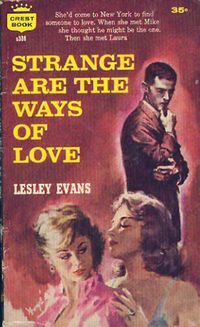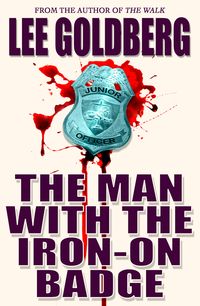THE WALKING DEAD showrunner Frank Darabont stirred up a lot of talk among TV writers today by firing his writing staff and announcing that he would rely on himself and just a couple of freelancers to write the second season's 13 episodes.
This is not a new idea. In fact, many drama series from the 1950s and into the early 70s relied on a headwriter/freelancer model…at most, there was a head-writer and a story editor. Everything else was freelance. Shows like GUNSMOKE, STAR TREK, CANNON, VEGA$, etc. ran on this model. In those days, journeyman writers like Stephen Kandel, Robert Dennis, Mark Rodgers, Frank Telford and Shimon Wincelberg, to name a few, could make a good living writing two or three episodes for five or six different series each season.
Then again, in those days, the "head writer" concentrated mostly on writing while someone else handled most of the actual producing functions that the "showrunner" does today.
And while most series today rely on writing staffs (though the size of those staffs is shrinking), there have been a few shows that have primarily been written by one writer… Linda Bloodworth's DESIGNING WOMEN, Aaron Sorkin's era of THE WEST WING and Joe Straczynski's BABYLON 5, are a few prominent examples.
TV writer Kay Reindl does a great job putting the Darabont decision into perspective, and discussing what writing staffs bring to a series, over on her blog today. She says, in part:
It still astonishes me that people do not understand that the writing of the script comes at the END of the writing process. Just because you are not typing "Fade In," that doesn't mean you are not writing. Writing is preparation. Writing is construction. Destruction. Composition. It's editing. Storytelling visually, emotionally, humorously, logically. Critical thinking. Letting go of great ideas in service of the story. Character arcs, planned over an episode and a season and the life of the show. It's inspiration, the testing of that inspiration, the honing and fine-tuning of that inspiration. It's collaboration, for the love of God. It's a group of experienced brains tackling a blank white board and breaking a fucking story in two days.
[…]you will need to collaborate with your fellow writers. You will be facing that empty white board at least 13 times, and as you face each new episode, you will have previous episodes with story and character development to consider. You will have upcoming episodes as well, especially if your show is serialized. You will have budgets to consider in your story breaks. Actors. Production. Crew. Studio and network executives. You will have to become a serial killer of your story children and let your great ideas go. And all of THAT is before you even get to the script.
[…]A good showrunner depends on his (or rarely her) writing staff. These people have the showrunner's back, and he has theirs. [..]I don't know why Darabont decided this (if he has), or why his experience with his staff was apparently so wretched that he doesn't want anyone around anymore. Sometimes, showrunners are just lousy communicators and aren't able to impart what they want to the writing staff. And sometimes it's just not a good fit. But again, it's up to the showrunner to use his experience and if someone doesn't actually HAVE experience, then THIS happens.
By "this," she means firing your writing staff and deciding to go it alone… with an occasional assist from freelancers. My instinct is that she's probably right. It could also be that he hired the wrong writers, that he didn't know how to staff a room. There could be any number of explanations.
He may not understand that it's part of a showrunner's job to take a final pass at each script — and he may be deluding himself into believing its the equivalent of writing every script himself, so why not cut out the extra step. If that's the case, he's in for a rude awakening.
I tend to think that shows with writing staffs are better written than those where the showrunner tries to go it alone (I'm talking about series with more than five or six episodes). The stories are more consistent, there's less repetition and cliche, and there's more energy to the story-telling.
It's all about limited resources. A man can only do so much… and do it well…and deliver a new episode every seven or eight days. There's simply too much for a showrunner to do beyond writing the script. It's a taxing job, and something has to give.
If you're trying to run a show, and write every single word, the scripts are bound to suffer. Come to think of it, everything is bound to suffer.
It will be interesting to see how long Darabont sticks to his plan once production begins and he finds himself falling behind…
 Lawrence Block has written a terrific piece for eFanzines.com – Earl Kemp: eI53 – e*I* Vol. 9 No. 6 about the thought-process behind his decision to release many of his obscure, long out-of-print paperbacks, many written under pen-names, in new, digital editions. He says, in part:
Lawrence Block has written a terrific piece for eFanzines.com – Earl Kemp: eI53 – e*I* Vol. 9 No. 6 about the thought-process behind his decision to release many of his obscure, long out-of-print paperbacks, many written under pen-names, in new, digital editions. He says, in part:

